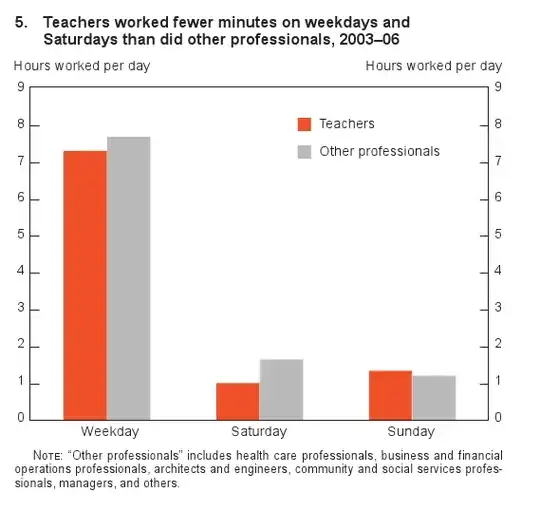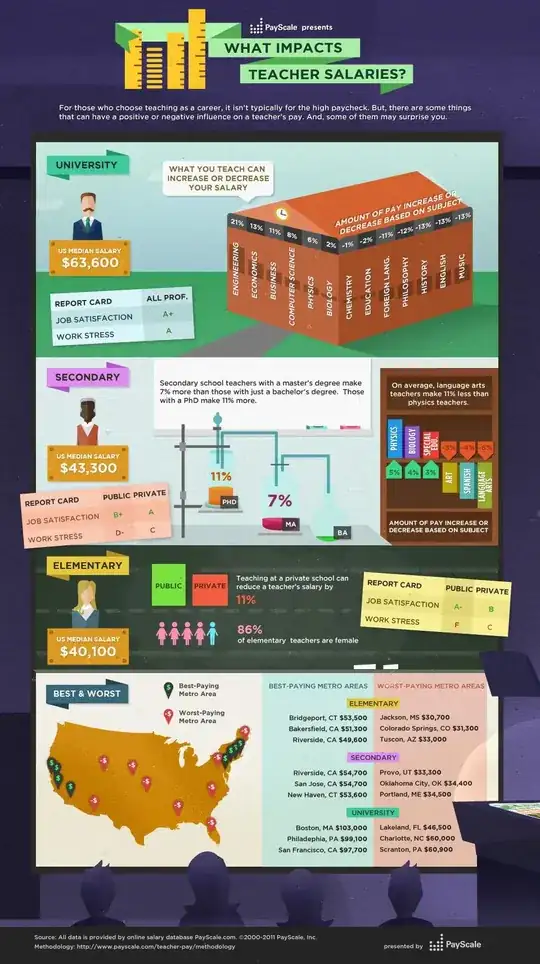No, not according to Bureau of Labor Statistics figures.
the national annual median wage, which was $33,840 in May 2010
Table 2.
Elementary School Teachers, Except Special Education - $51,660
Or from their occupational handbook, which has this nice graph.
2010 Median Pay - $51,380 per year
The National Center for Educational Statistics shows Base Salary by state based on years of experience. You can compare those numbers with BLS numbers and you will discover that even starting pay for teachers is higher than the national median salary, or do comparisons by state.
Even when you compare teachers with other occupations that require a bachelor's degree, the data doesn't look bad for teachers (BLS querry, search by education, bachelor's degree, (sort by) 2010 median annual wage. You will find that teachers rank 96-117th out of 154.) They are less than a standard deviation from the mean, only 16% difference from the median salary Accountants and Auditors.
$65,060 - Average salary all 154 occupations listed for which the typical entry-level education is Bachelor's degree, sorted by 2010 median annual wage.
$61,690 - (76th) Median Occupation, Accountants and Auditors
$20,815 - Standard Deviation
$53,230 - (105th) Secondary School Teachers, Except Special and Career/Technical Education
$51,960 - (109th) Middle School Teachers, Except Special and Career/Technical Education
$51,660 - (110th) Elementary School Teachers, Except Special Education
$48,800 - (117th) Kindergarten Teachers, Except Special Education
Additionally, this only compares annual salary of teachers versus other professions. Teachers work fewer hours per day (including weekends), and teachers work fewer (185 days/year) on average versus 230 days/year. I used an 8 hour work day, even though teachers typically work less hours than most other occupations (see chart below).
Median Salary (all 154 occupations) $61,690 / (230 * 8) = $33.53/hour
Median Teacher's Salary $51,380 / (185 * 8) = $34.72

If we further correct this data by adjusting for sex, 0.9 wage gap for women teachers (page 80), in this predominantly female field (84%). This also doesn't correct for CEO pay and Engineering pay that are highly dominated by males. This is all before you even look at benefits.

